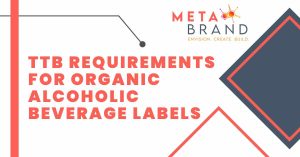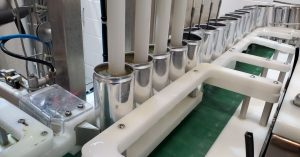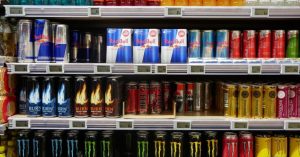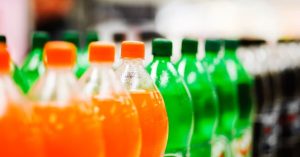Key Takeaways:
- Non-alcoholic drinks must comply with federal guidelines for labeling accuracy and are exempt from alcohol taxes, ensuring consumer safety and fairness.
- State regulations offer chances to understand consumer preferences and strengthen your brand, with MetaBrand ready to help navigate these laws.
- The NBFDS mandates bioengineered food labeling for transparency from 2023
- FDA rules for bottled water ensure safety and clear labeling, with adherence to these standards promoting public health and product quality.
- Dietary supplements in beverages require strict testing and truthful labeling as per FDA and state laws, ensuring consumer safety and product integrity.
Have you ever sipped on a refreshing drink and wondered about the beverage regulations behind it? There’s an intriguing world of laws, guidelines, and standards that ensure our drinks are safe to consume.
In this sea of beverages, navigating regulations can feel like steering through choppy waters. It’s not just what’s in your glass; there’s more beneath the surface – labeling requirements, nutritional claims, and even state-specific variations.
In this post, we will discuss beverage regulations. You’ll uncover how non-alcoholic drinks align with federal laws or grapple with state-level nuances.
For those looking to create or reformulate a beverage, insights into these regulations can be pivotal. Explore our beverage formulation services to see how our experts can assist in navigating these complexities.
Understanding FDA Beverage Regulations for Non-Alcoholic Drinks
If you’ve ever been curious about what goes into making your favorite non-alcoholic beverages, it’s time to get familiar with the federal regulations. Let’s decipher the complexities of federal regulations concerning non-alcoholic drinks.
Compliance with Labeling Claims
Beverage manufacturers have a responsibility to ensure that their product labels accurately represent what’s inside the bottle. It isn’t as easy as slapping on some catchy words and hoping they’ll stick. They must comply with specific guidelines when making claims about their products.
For instance, consider nutrient content claims such as “low sugar” or “high fiber”. These aren’t just marketing buzzwords – they’re regulated by law. Each claim has its own set of criteria that a beverage must meet before it can be used on packaging.
The FDA’s Role in Beverage Regulations
The Food and Drug Administration (FDA) plays an important role here. You may know the FDA from health news headlines or recall alerts, but this agency does more than spot-check problematic food items; it sets the standards for our entire food supply system.
The FDA is responsible for regulating most bottled water and other non-alcoholic drinks like juices and sodas under both general food safety laws and specific beverage control measures. If any manufacturer tries to play fast-and-loose with these guidelines, the FDA steps in to fix things up.
Let me throw out an interesting fact here: The Alcohol and Tobacco Tax and Trade Bureau (TTB) defines “beer” as a fermented beverage containing 0.5% or more alcohol by volume (ABV). In the US, non-alcoholic beer with an ABV of less than 0.5% is exempt from federal alcohol excise taxes.
State Regulations for Non-Alcoholic Beverages
State regulations for non-alcoholic beverages are a maze that manufacturers need to navigate carefully. But don’t worry, MetaBrand has the expertise and firsthand experience to help guide you through it.
Variations in State Laws
Did you know state laws regarding direct-to-consumer shipment of non-alcoholic beer vary greatly? Some states have a wide interpretation of what “beer” or “malt beverage” means, not limited to any specific alcoholic content.
Imagine trying to market your new NA (non-alcohol) craft brew only to find out the state considers it an alcoholic beverage because they categorize anything with malt as ‘beer’. Talk about a buzzkill.
In such cases, navigating these regulatory requirements can feel like driving on different sides of the road from one state to another. However, understanding variations in-laws is crucial when strategizing your brand’s expansion across multiple markets.
This may sound overwhelming but remember this – what makes us human is our ability not just to adapt but thrive under changing conditions. With every challenge comes opportunity and knowledge gained from overcoming regulatory hurdles will only make your brand stronger.
Unpacking Bioengineered Food Disclosure Standard (NBFDS)
The National Bioengineered Food Disclosure Standard (NBFDS) is an intriguing piece of regulation that directly impacts the beverage industry. This standard, enforced by the USDA and FDA, serves as a yardstick to determine if a product qualifies as bioengineered food.
Understanding Bioengineered Food
A quick dive into what constitutes bioengineered food helps us grasp this concept better. A layperson might query, “Is this something from a science fiction flick?” Not precisely. It’s simpler than you think but still fascinating in its complexity.
Bioengineering involves tweaking an organism’s genetic makeup – kind of like playing Lego with genes. Now imagine applying this technology to our everyday foods and beverages.
This manipulation can enhance nutritional value or increase resistance against pests – pretty neat stuff. However, consumers have raised concerns about potential health risks associated with consuming such products leading to stringent regulations like NBFDS.
Navigating through FDA jurisdiction reveals that disclosure standards are already in place for these so-called BE foods under voluntary labeling.
We at MetaBrand deal with these complex regulatory landscapes every day while formulating and manufacturing beverages. The know-how we’ve developed over time allows us smooth sailing even amidst changing tides brought about by new policies like NBFDS.
Nitty-Gritty of NBFDS Compliance
Digging deeper into the practical aspects paints a clearer picture regarding NBFDS compliance. If your food item is genetically modified, it must be indicated on the packaging.
While some may view this as a challenge, we see it as an opportunity for transparency with consumers who are increasingly seeking more information about their food and drink choices.
The mandatory labeling rule isn’t just coming – it’s almost at our doorstep. But don’t worry; MetaBrand has got you covered. We’re always ahead of the curve when navigating regulatory requirements in the beverage industry.
Breaking down complex regulations such as NBFDS can be a challenge, but it’s essential to understand them fully.
Exploring Specific Regulations for Bottled Water
Bottled water regulations may seem as clear as the product they govern, but there’s more depth than meets the eye. It’s not just about quenching your thirst; it’s also about complying with federal guidelines and maintaining high standards of public health.
Labeling Requirements for Bottled Water
To start, let’s dive into labeling requirements. The FDA plays a critical role in this aspect. They make sure that all bottled water products are correctly labeled to give consumers accurate information regarding the nutritional content and origin of the water.
The FDA guidelines mandate that certain terms like ‘spring’, ‘mineral’, or ‘purified’ can only be used if specific conditions are met. For instance, you cannot use ‘spring’ unless your product is sourced from an actual spring.
FDA Compliance
Moving beyond labels, compliance with drinking water standards is another crucial area where bottled water manufacturers need to pay attention.
The FDA mandates that all bottlers must adhere to stringent safety measures akin to those applied by EPA for tap water. This ensures safe drinking fluid intake for everyone who opts for bottled over tap.
Taking Quality Assurance Up A Notch
Moreover, manufacturers often go above and beyond regulatory demands – because why settle? Many companies participate in third-party verification programs such as NSF International’s certification program which offers voluntary labeling services while examining contaminants and other potential threats present in source waters.
Insights into Dietary Supplements in Beverage Regulations
Understanding the regulatory landscape of dietary supplements in beverages can feel like navigating a maze. Don’t be concerned, we’re here to help guide you through this complex terrain.
Safety and Testing Requirements
Dietary supplements used in beverages need rigorous testing to ensure they meet safety standards. Just think about it – you wouldn’t want your morning energy drink laced with harmful substances now, would you?
To guarantee this doesn’t happen, manufacturers must comply with guidelines laid out by bodies such as the Food and Drug Administration (FDA). These include making sure that novel ingredients are safe for consumption before hitting store shelves.
The FDA also requires manufacturers to follow specific labeling claim procedures when marketing their products. In simple terms? You can’t just say your product does something without backing up those claims.
Beyond federal oversight, state laws play a crucial role too. For example, the Texas Alcoholic Beverage Code has rules around dietary supplements if they contain any alcohol content at all.
Nutrient Content Claims
You’ve probably noticed labels on drinks boasting “high vitamin C.” or “rich in antioxidants.”. Well, these nutrient content claims aren’t there just for show – they’re regulated too. For example:
- Firms must adhere to strict notification procedure requirements from authorities before making nutrient content claim notifications or health claim petitions about their products’ benefits.
- If an item boasts structure/function claims—say improving brain function—it should have solid scientific evidence supporting that assertion.
On top of that, brands must make sure their nutrient levels align with any health claims they’re making. It’s all about transparency and ensuring you get what’s advertised on the bottle.
A Final Word About Beverage Regulations
Unraveling the complex world of beverage regulations, you’ve journeyed from federal to state laws. Your non-alcoholic drinks need certain labels and how they comply with various rules.
You’ve seen the rigorous safety testing behind dietary supplements in beverages, and what goes into bottled water regulations. And yes, even that craft beer has a story told through its compliance with alcohol laws.
Navigating this regulatory maze isn’t easy, but it’s vital for both industry players and informed consumers. From bioengineered food standards to labeling requirements, these guidelines ensure we can safely enjoy our favorite drinks.
When you’re looking for an experienced, high-quality beverage manufacturer, contact MetaBrand.












